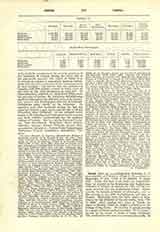

Canal, JOSE DE LA, ecclesiastical historian, b. of poor parents, at Ucieda, a village in the province of Santander, January 11, 1768; d. at Madrid, April 17, 1845. Under the care of an uncle, an Augustinian friar, he studied in the Dominican and Augustinian convents of Burgos; at Burgos, in 1785, he was formally received into the Augustinian Order. Subsequently he became professor of philosophy, first at the convent of his order at Salamanca, and then at Burgos. Returning from the latter place to Salamanca he was librarian of the university, from 1789 to 1800. After passing four years at Toledo, he came to Madrid, where he taught philosophy in the College of San Isidro. On account of certain articles in a paper of liberal tendencies called “El Universal” he was, on the return to Spain of King Ferdinand VII, confined for one year in a convent near Avila. At the end of this period he returned to Madrid and with his brother Augustinian, Fr. Antolin Merino, was appointed by the King to continue the monumental “Espana Sagrada” (Holy Spain), begun in 1743 by the Augustinians Henrique Flbrez and Manuel Risco. This valuable collection of documents and researches relating to Spanish ecclesiastical history had already reached its forty-second volume. The work embraces an account of the foundation and vicissitudes of all Spanish dioceses, the succession of the Spanish hierarchy, the most important monasteries, and other matters of interest to the Spanish Church studied in their original sources and by the most severe critical methods. From the time of his appointment Canal devoted himself with ador and perseverance to his task. In order to collect material for the publication, he undertook two journeys into Catalonia, making his headquarters at Barcelona and Gerona, and working assiduously in the archives of these cities. In conjunction with Father Merino he published vols. XLIII-XLIV of the Espana Sagrada” at Madrid in 1819; vols. XLV-XLVI (Madrid, 1826-32) were due to Father Canal alone. These volumes treat of the churches and monasteries of the diocese of Gerona, and are remarkable for the number and importance of hitherto unpublished documents, and for the critical accuracy of the investigations. To his collaborator Father Canal dedicated an interesting biographical study in his “Ensayo historico de la vida literarla del Maestro Fr. Antolin Merino” (Madrid, 1830); he also published a second edition, greatly enlarged by himself, of the “Clave historial” (Key to History) by Father Flbrez (Madrid, 1817) and a “Manual del Santo Sacrificio de la Misa” (Madrid, 1817, 1819). He translated from the French various theological and historical works, and was successively corresponding member, treasurer, censor, and director of the Royal Academy of History. He belonged to the Academy of Natural Science of Madrid, to the Academy of Belles-Lettres of Barcelona, and to the Antiquarian Society of Normandy. Father Canal was an exemplary ecclesiastic, distinguished for charity to the poor. He refused the See of Gerona in 1836 notwithstanding the entreaties of Queen Isabella II, excusing himself on the score of age and ill health, and declaring he believed he could better serve God and his country if he continued to devote the remainder of his life to historical research.
EDUARDO DE HINOJOSA

